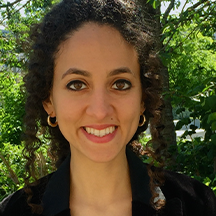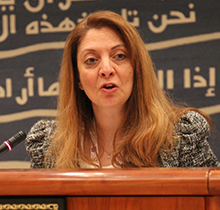In a nutshell
Temporary migration provides an opportunity for workers to acquire physical capital, to accumulate savings and assets and, most importantly, to acquire new skills and knowledge.
Evidence from Egypt indicates that return migrants are more likely to climb up the occupational ladder compared with non-migrants.
The most educated returnees seem to gain more skills from their overseas work experience and climb the ladder furthest.
For many poor developing countries, the emigration of the high skilled workers is a source of concern. The so-called ‘brain drain’ is seen as a negative consequence of international emigration.
But international migration can also lead to ‘brain gain’ when the aspiration of emigration increases the incentives to get education, as this increases the possibility of emigration. Another channel through which the emigration of high skilled workers results in a brain gain is return migration, when returnees acquire new skills overseas and return to their origin countries with enhanced human capital.
As such, temporary migration provides an opportunity for workers to acquire physical capital, to accumulate savings and assets and, most importantly, to acquire new skills and knowledge. On returning to their home country, migrants represent an inflow of both human capital and financial capital. The return of migrants can be a potential source of economic growth for the origin country through increased productivity and knowledge diffusion.
Overall, the evidence suggests that there is a positive wage premium associated with overseas work migration for returnees in developing countries.
Another measure of the acquisition of human capital of temporary migrants is their skill upgrading or occupational mobility. Whether migrants acquire human capital while they are overseas is an important issue for the economic development of their home countries, especially since public debate tends to underscore the potentially negative impact of high skilled emigration, resulting in a brain drain for sending countries.
My study with Nelly El Mallakh provides new evidence on the impact of temporary migration experiences on the human capital accumulation of returnees (El Mallakh and Wahba, 2016). We do so by examining the occupational mobility of return migrants vis-à-vis working-age individuals who have never migrated, controlling for the non-random nature of migration.
Unlike studies of wage premia in which the wages of returnees are only observed at the time of the survey, we are able to construct data on individuals’ occupational mobility based on their first job and current occupation.
Furthermore, we adopt a novel approach to identifying the impact of overseas migration by constructing cohort groups who entered the labour market in the same decade. This makes it possible for us to control for the initial labour market conditions and examine current occupational mobility relative to their first job.
This research question is important for two reasons. On the one hand, the answer to this question is not straightforward. Temporary migrants might acquire additional human capital due to their work experience abroad and hence, the human capital accumulated abroad might help those temporary migrants to find occupations higher in the skill and remuneration ladder on returning home.
Conversely, it might be the case that temporary migration experience is motivated by the shortage of unskilled labour in destination countries and subsequently, the positive effects of temporary migration on human capital and occupational mobility might be contested.
Whether temporary emigration and overseas work experience enhance human capital accumulation is an important question. In particular, whether temporary migration can provide a way to promote the economic development of sending countries and compensate for the loss of human capital due to outward migration through the returnees’ higher human capital remains an understudied issue.
Our results show that returnees are more likely to climb up the occupational ladder compared with non-migrants. In particular, the most educated returnees seem to gain more skills from their overseas work experience and climb the ladder furthest. The evidence from our research underscores that return migration can lead to a brain gain for the countries of origin.
Further reading
El-Mallakh, Nelly, and Jackline Wahba (2016) ‘Upward or Downward: Occupational Mobility and Return Migration’, ERF Working Paper No. 1010.



